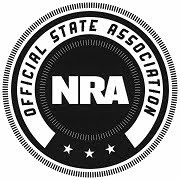That prediction — Washington will be safer without the gun ban — stems from what's known as the "more guns, less crime" hypothesis. It argues that violent crime declines in places where more legal gun owners carry the weapons in public, both because those people are capable of self-defense, and because would-be criminals know they're out there. "More guns, less crime" has been an incredibly potent idea in local policy debates over gun laws. But is there evidence that it's true?
The District, which is appealing the decision, isn't buying it.In the next paragraph you get a sense of where that term "deeply contested" may have originated. Badger went to Johns Hopkins University gun ban researcher Daniel Webster. Webster was part of the Consortium for Risk-Based Firearm Policy that held a "summit" at UVA at the end of last year. Webster is currently involved in a project of the Police Executive Research Forum funded by the U.S. Department of Justice where he is studying a City of Sacramento ordinance requiring purchasers of ammunition in the city to sign a log and leave a fingerprint at the time of purchase and what impact it may have had on reducing crime.
The theory has largely been fueled by a deeply contested 1997 paper by economists John Lott and David Mustard, who concluded that "concealed handguns are the most cost-effective method of reducing crime thus far analyzed by economists." If states without concealed-carry laws had them back in 1992, Lott and Mustard calculated, that year they could have avoided hundreds of murders, thousands of rapes and tens of thousands of assaults.
Webster told Badger:
"John Lott’s research was in my opinion very instrumental over decades in having more states pass laws to make it easier to get permits to carry concealed loaded guns, and to lessen the barriers for those permit holders to take guns in ever more places, whether it's bars, or places of worship, or schools," says Daniel Webster, the director of the Johns Hopkins Center for Gun Policy and Research. "It’s all based upon Lott’s scholarship that has been completely discredited."In fact, the very study that Webster sited to Badger as proof that Lott's research on concealed carry is flawed was itself challenged in the research paper, Trust But Verify: Lessons for the Empirical Evaluation of Law and Policy. The Abstract to that paper notes:
In a recent article, Aneja, Donohue and Zhang claim that they are unable to replicate the regressions published by the National Research Council in Chapter 6 of Firearms and Violence. They conclude that the NRC regressions must have been based on bad data supplied by John Lott. The implication is that earlier studies that found that right-to-carry laws reduced crime were flawed because of bad data. However, we can replicate the NRC results with Lott’s original data and with the data set used by the NRC. The earlier studies are not flawed by bad data.But even more important. Webster's quote in the blog post that "My opinion is that I think there’s greater evidence that they probably have had some harmful impact" just doesn't hold up when you look at the numbers. For instance, between 2006 and 2012, the number of firearms sold in Virginia increased 101% while crime committed with a firearm decreased 28%. Firearm related crime has dropped in Virginia for four consecutive years. A VCU criminal justice researcher put it this way:
“This appears to be additional evidence that more guns don’t necessarily lead to more crime,” said Thomas R. Baker, an assistant professor at Virginia Commonwealth University’s L. Douglas Wilder School of Government and Public Affairs who specializes in research methods and criminology theory.Those who question Lott's research usually are on the side of the argument that wants to place more restrictions on law abiding gun owners. So, why doesn't the media openly question the bias that a proponent of gun control may have in their research?








No comments:
Post a Comment